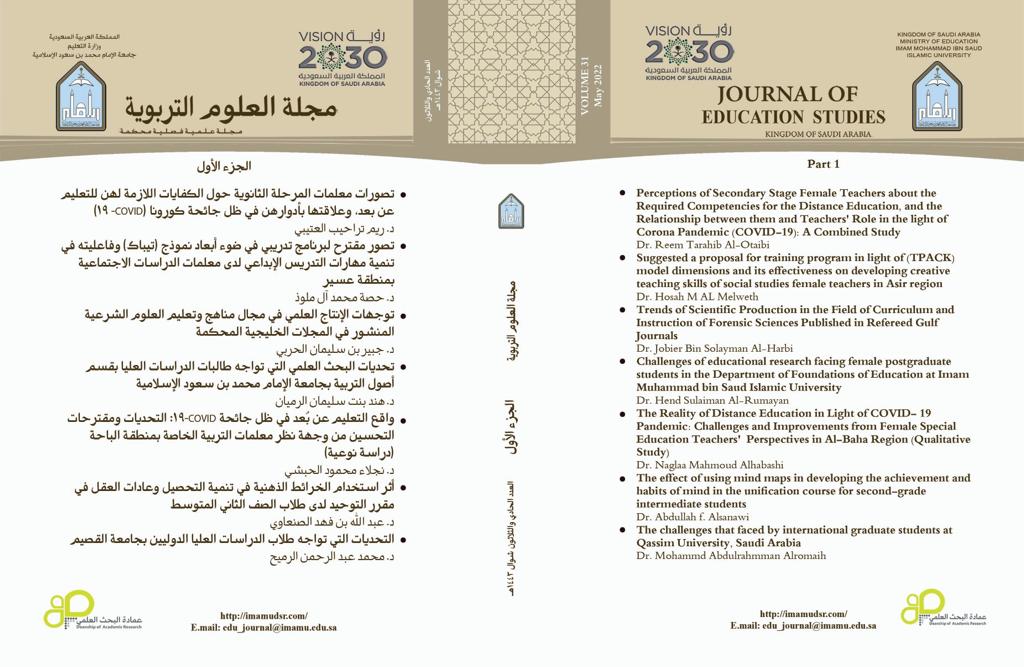Trends of Scientific Production in the Field of Curriculum and Instruction of Forensic Sciences Published in Refereed Gulf Journals
Keywords:
legislative sciences- Scientific production- Gulf refereed journals- Research trends- Legislative sciences education- Educational research.Abstract
To identify such methodological and objective trends. The researcher utilized the descriptive approach (survey, content analysis); and used an analytic form to analyze (235) refereed research in the education of legislative sciences, published in (39) Gulf refereed journals. In addition, the research concluded several results, the most important of which are presented next.
In terms of the methodological trends: most of the scientific production was directed towards applied research which focused on the quantitative approach, especially the descriptive approach, then the experimental; and content analysis was the most used descriptive approach, then the survey. In addition, such products targeted human societies, of which students were the most targeted groups, followed by teachers.
Research studies that used one tool-outperformed studies that used more than one tool. The most used tools were content analysis forms, then questionnaires and tests. Interviews and observations did not receive enough attention in that production. In the field of objectives: such scientific production focused on the study of general education (the secondary stage was the most targeted stage of general education, followed by the intermediate stage) and then university, and of which attention has been paid to the bachelor’s stage.
Most topics in that scientific production focused on the elements of the curriculum and the teacher, and less interest in the learning environment. As for the elements of the curriculum, researchers were interested in studying teaching methods, the content, and the content branches on the decisions of jurisprudence and its origins, then teaching methods, the Qur’an and its sciences, and was also interested in studying the cognitive aspects of the learner, then the skill aspects. Less attention targeted the emotional aspects, as the scientific production was concerned with the practices of the teacher and its assessment. In addition, the integration of technology and education in forensic sciences was also of interest to researchers. The study ended with some recommendations and suggestions for further research.




